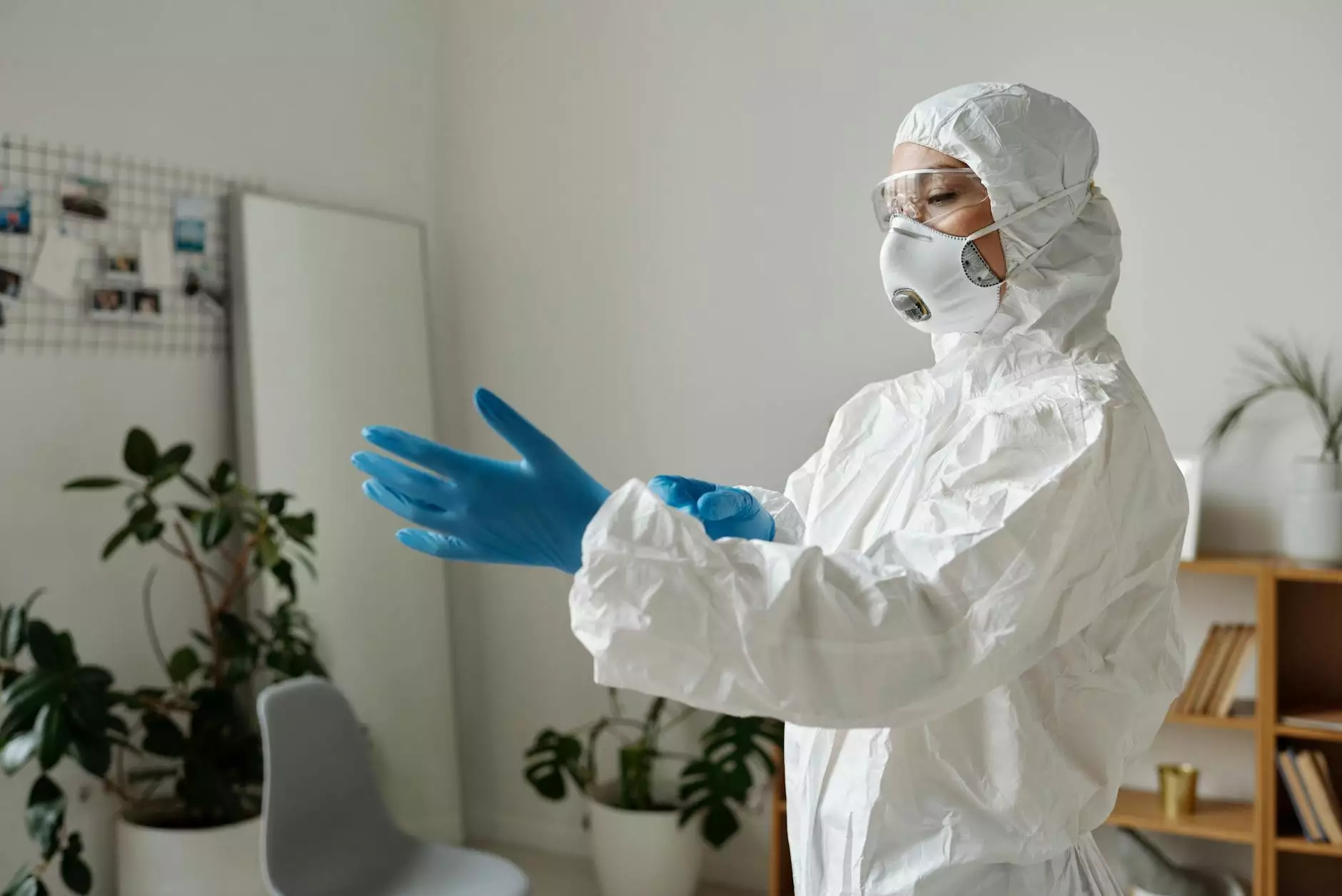Understanding Biohazard Remediation Technician Jobs

The rise in understanding of public health has led to an increased demand for biohazard remediation technician jobs. These professionals play a crucial role in ensuring safety in environments affected by hazardous materials. This article delves into the essential aspects of the job, providing insights for those looking to pursue a rewarding career in this field.
What is Biohazard Remediation?
Biohazard remediation refers to the cleanup, removal, and disposal of hazardous materials that pose risks to public health and the environment. This process often involves dealing with materials resulting from crime scenes, medical waste, sewage spills, and other hazardous occurrences. Biohazard remediation technicians are trained specialists who ensure that spaces are safe for use after such incidents.
Roles and Responsibilities of a Biohazard Remediation Technician
Individuals in biohazard remediation technician jobs undertake a variety of tasks, including:
- Assessment: Evaluating the site to determine the extent of contamination and the materials involved.
- Cleanup Procedures: Following established protocols to safely remove and dispose of biohazardous waste.
- Decontamination: Using specialized equipment and chemicals to decontaminate surfaces and materials.
- Documentation: Keeping detailed records of the cleanup process, including hazards encountered and waste disposed of.
- Compliance: Ensuring that all procedures meet local, state, and federal regulations regarding hazardous materials.
Skills Required for Biohazard Remediation Technicians
To excel in biohazard remediation technician jobs, certain skills and qualities are vital:
- Attention to Detail: Precision is critical in identifying hazards and executing containment procedures.
- Physical Stamina: The job often requires physical labor, including lifting heavy objects and wearing safety gear.
- Problem-Solving Skills: Technicians must be able to react quickly and effectively to unexpected situations.
- Knowledge of Safety Protocols: Familiarity with OSHA regulations and personal protective equipment (PPE) is essential.
- Technical Skills: Comfort with using cleaning equipment and hazardous waste disposal technology.
Educational and Training Requirements
While the path to becoming a biohazard remediation technician may vary, several common educational and training steps include:
- High School Diploma: A minimum educational requirement for most positions.
- Specialized Training Programs: Many technicians complete training courses focused on biohazard cleanup and safety.
- Certification: Certifications such as the HAZWOPER certification (Hazardous Waste Operations and Emergency Response) are often necessary and demonstrate professional competence.
- On-the-Job Training: Practical experience under guidance is essential to build the skills needed in real-life scenarios.
Career Opportunities and Job Outlook
The demand for biohazard remediation technicians is on the rise, with significant opportunities in various sectors, including:
- Crime Scene Cleanup: Cleaning and decontaminating sites where violent crimes have occurred.
- Medical Waste Management: Handling and disposing of medical hazards in hospitals and clinics.
- Environmental Cleanup: Addressing biohazards resulting from natural disasters or industrial accidents.
- Restoration Companies: Many businesses specialize in responding to biohazard incidents and require skilled technicians.
According to the U.S. Bureau of Labor Statistics, the job outlook for environmental technicians, which includes biohazard remediation technicians, is expected to grow at an average rate in the coming years. This growth is driven by increasing awareness of the importance of public health and safety.
The Importance of Biohazard Remediation Technicians
Biohazard remediation technicians are essential for maintaining community safety. Their work protects public health by:
- Preventing Disease: Proper cleanup prevents the spread of infectious diseases that biohazards often carry.
- Environmental Protection: Removing hazardous waste from an environment ensures that communities remain healthy and safe.
- Supporting Law Enforcement: Their expertise can be crucial during crime scene investigations, ensuring scenes are handled properly.
How to Prepare for a Career in Biohazard Remediation
For those interested in pursuing biohazard remediation technician jobs, here are several steps to prepare for the career:
- Research the Field: Understand the various roles and responsibilities associated with biohazard cleanup.
- Gain Relevant Experience: Look for internships or entry-level positions in hazardous waste management or environmental services.
- Network with Professionals: Join professional organizations or online forums related to environmental and safety services.
- Stay Informed: Keep up to date with the latest safety regulations and cleanup techniques.
The Role of BiohazardPlus in the Industry
As a leader in biohazard cleanup, BiohazardPlus offers comprehensive services that ensure safe environments for communities. Their trained professionals embody the skills and knowledge necessary to handle hazardous materials effectively. By choosing BiohazardPlus, clients gain assurance that all cleanup procedures adhere to the highest standards of safety and compliance.
Conclusion
In conclusion, biohazard remediation technician jobs offer a unique and essential service that contributes significantly to public health and safety. With increasing demand, professionals in this field can expect a rewarding career with diverse job opportunities. With proper training, skills, and a commitment to safety, you can make a real difference in your community by pursuing a fulfilling career in biohazard remediation.









